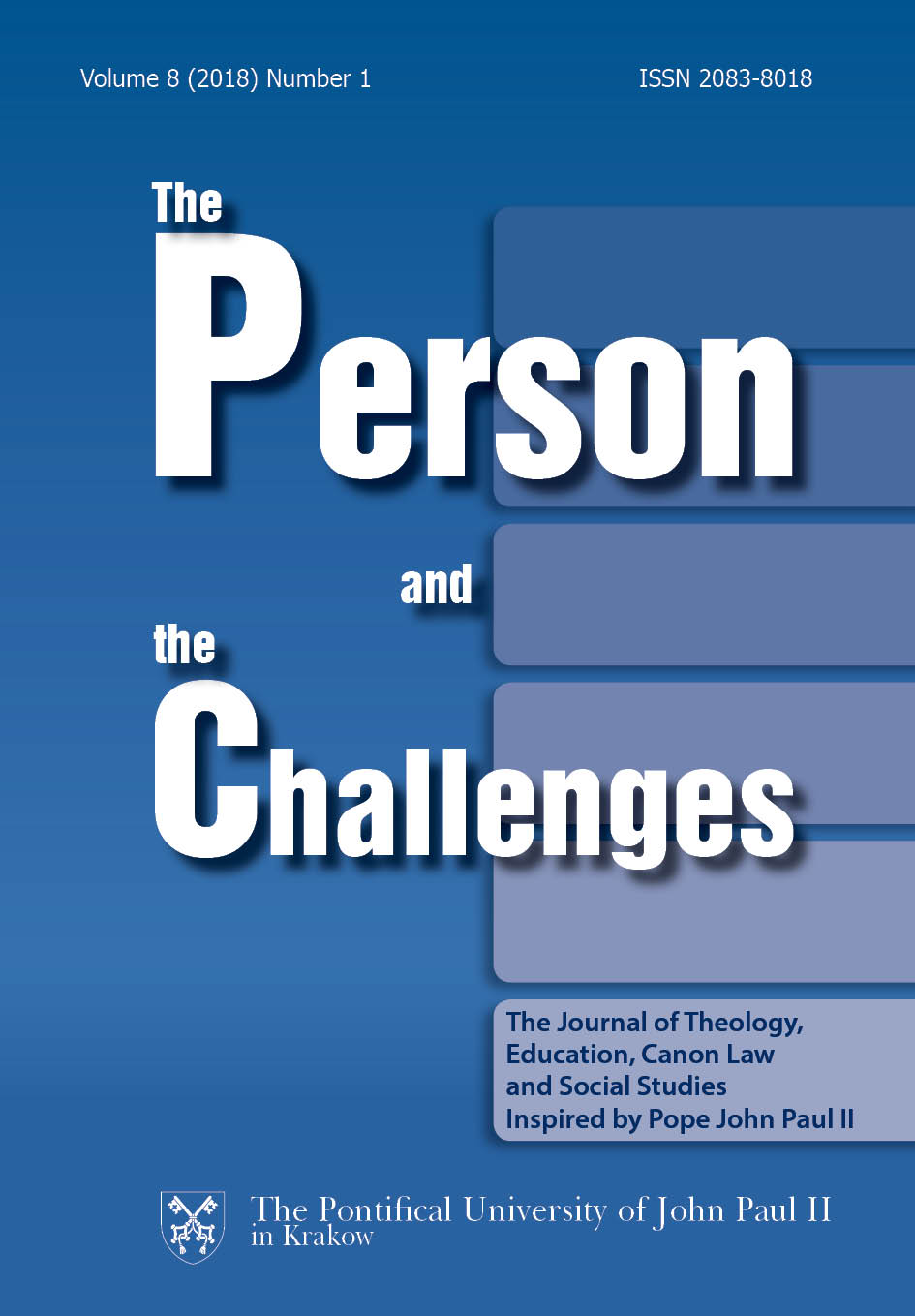Contemplation and rationality. The sacred dimension of theology
DOI:
https://doi.org/10.15633/pch.2430Słowa kluczowe:
Jesus Christ, theology, prayer, contemplation, spirituality, rationalityAbstrakt
This article raises the question of the mutual relation between theology and prayer. Theology is knowledge about God – the Holiest – and should carry out research in a holy manner, contributing to the holiness of the person who is connected with theology as a teacher or a student. The question of the relation between theology and prayer belongs to the most fundamental issues concerning the method of theology to which we should constantly refer as to an important source of guidelines for today. This article first focuses on certain statements which appeared in the past centuries and which discussed the relation between theology and prayer, trying to find the adequate approach to the spiritual and scientific situation in the field of theology in those times. After this introduction, it presents the view that prayer may be used in service of theology. Theology, on the other hand, in its full and traditional sense, is total and complete only then, when it constitutes the foundation of piety and leads to prayer. Theology through prayer can permeate the inner life opening itself to the state when we belong to God who resides in our heart.
Bibliografia
Anselm, Proslogion seu Alloquium de Dei existentia: PL 158, 241-248.
Balthasar H. U. von, Theologie und Heiligkeit, “Wort und Wahrheit” 3 (1948), pp. 881-896.
Balthasar H. U. von, Christenleben als Philosophie, “Catholica” 14 (1958), pp. 291-304.
Balthasar H. U. von, Sponsa Verbi. Skizzen zur Theologie – II, Einsiedeln 1971.
Balthasar H. U. von, Regagner une philosophie à partir de la théologie, in: Pour une philosophie chrétienne. Philosophie et théologie, Coll. Le Sycomore, Paris – Namur 1983, pp. 175-187.
Bonaventure, Collationes in Hexaemeron.
Chantraine G., «Mystère» et «Philosophie du Christ» selon Erasme. Étude de la lettere à P. Volz et de la «Ratio verae theologiae» (1518), Namur – Gembloux 1971.
Chapelle A., À l’école de la théologie, Bruxelles 2013.
Clement of Alexandria, Stromata: PG 9, 9-601.
Congar Y., Chercher la vérité dans la douceur de la communauté, “La Vie Spirituelle” 81 (2001) no 735, pp. 285-297.
Bede Venerable, In Evangelium Lucae expositio: PL 92, 633-938.
Evagrius Ponticus, Capita practica ad Anatolium: PG 40, 1219-1250.
Evagrius Ponticus, De oratione: PG 79, 1166-1197.
Gerson J., Early works, New York 1998.
Gregorio Magno, Commento al Cantico dei cantici, introducione, traduzione e note a cura di A. Montanari, Milano 2012.
Hausherr I., La théologie du monachisme chez saint Jean Climaque, in: Théologie de la vie monastique. Études sur la Tradition patristique, Théologie. Études publiées sous le direction de la Faculté de Théologie S. J. de Lyon-Fourvière, Paris 1961, pp. 385-410.
Igatius of Loyola, The Spiritual Exercies.
John Chrysostom, Homiliae XC in Matthaeum: PG 57, 13-463.
John Chrysostom, Homiliae XLIV in Epostolam Primam ad Corinthios: PG 61, 9-379.
Fontes narrativi de s. Ignatio de Loyola et de Societate Iesu initiis, vol. 1: Narrationes scriptae ante annum 1577, eds. D. F. Zapico, C. de Dalmases, Romae 1943.
Journet Ch., Introduzione alla teologia, Alba 1956.
Köpf U., Die Anfange der theologischen Wissenschaftstheorie im 13. Jahrhundert, Tübingen 1974.
Królikowski J., Jaka prawda? Jaka wolność? Propozycje do dyskusji z kulturą współczesną, „Sympozjum” 2 (1998) no 2, pp. 117-129.
Leclercq J., Études sur le vocabulaire monastique du moyen âge, Roma 1961, pp. 48-67 (Studia Anselmiana, t. 48).
Leclercq J., L’amour des lettres et le désir de Dieu. Initiation aux auteurs monastiques du moyen âge, Paris 1957.
Leclercq J., Vandenbroucke F., Bouyer L., Spiritualité du moyen age, Paris 1961.
Louf A., Un grand docteur monastique: S. Pierre Damien, ”Collectanea Ordinis Cisterciensium Reformatorum” 23 (1961), pp. 261-274.
Margerie B. de, Mélanges anthropologiques à la lumière de saint Thomas d’Aquin, Paris 1993.
Richard of Saint Victor, De gradibus charitatis: PL 196, 1207-1224.
Thomas Aquinas, Summa theologiae.
Torrell J.-P., Théologie et sainteté, ”Revue Thomiste” 71 (1971), pp. 205-221.
Vincent J. M., «Qu’est-ce que la théologie?». Une aproche par l’interprétation du Ps 116, ”Revue Biblique” 107 (2000), pp. 495-525.
Voillaume R., Come loro, Roma 1964.
Wąsek D., Koncepcja teologii Piotra Abelarda, Kraków 2010.
Pobrania
Opublikowane
Numer
Dział
Licencja
Prawa autorskie (c) 2018 Janusz Królikowski

Utwór dostępny jest na licencji Creative Commons Uznanie autorstwa 4.0 Międzynarodowe.
Autorzy publikujący w czasopiśmie udzielają jego wydawcy zgody o następującej treści:
- Autor zachowuje autorskie prawa majątkowe do utworu, a jednocześnie udziela wydawcy czasopisma zgody na jego pierwszą publikację w wersji drukowanej i wersji online na licencji Creative Commons Uznanie autorstwa 4.0 Międzynarodowe oraz zgody na wykonywanie opracowań, w tym przekładów.
- Autor ma możliwość udzielania zgody niewyłącznej na opublikowanie utworu w wersji, która ukazała się w czasopiśmie (np. zamieszczenia go w repozytorium instytucjonalnym lub opublikowania w książce), wraz z informacją o jego pierwszej publikacji w czasopiśmie.
- Autor może umieścić swój utwór online (np. w repozytorium instytucjonalnym lub na swojej stronie internetowej) jeszcze przed zgłoszeniem utworu do czasopisma.

